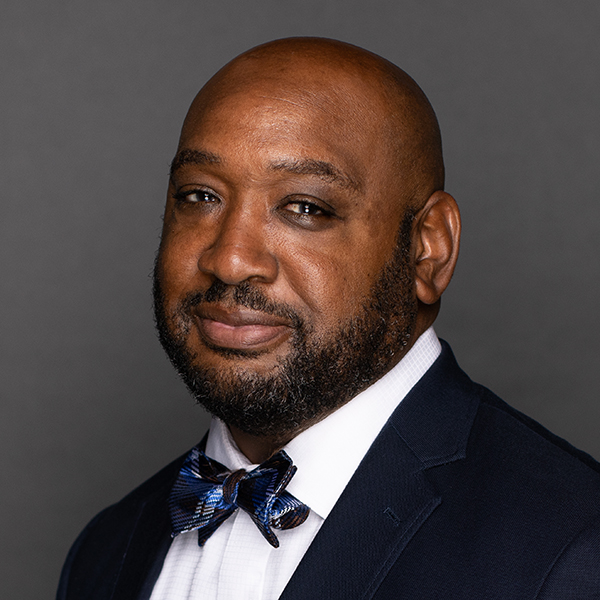Graduate Studies in Education
Master’s Degree in Education
Freed-Hardeman University’s Graduate Studies in Education programs are here to help you achieve your goals and make a difference in the lives of countless students. Our master’s degree in education program is well-designed, highly challenging, and boasts a reputation for producing nurturing professionals.
Empowering the Whole Person

Transform your teaching with a values-based approach. Join our program to become a compassionate and highly effective educator. 100% online courses allow you a flexible lifestyle. Our dedicated advisors will provide the support you need to excel in your journey toward success.

Empowering
Graduate Studies in Education Programs
Our Graduate Studies in Education Programs perfectly balance academic excellence and spiritual enrichment. As a renowned Christian institution, FHU is committed to providing a supportive environment that fosters growth and achievement for all its students. With a flexible curriculum and a dedicated faculty, earning a Master’s Degree in Education has never been easier.
Equip Yourself for Success with an Education Graduate Degree
Admission Requirements
M.Ed. and M.A.T. Admission Requirements
- Submit an application for admission.
- Must have completed an appropriate baccalaureate degree from a regionally accredited institution or an institution accredited by an agency recognized by the Council for Higher Education Accreditation and approved by the appropriate graduate program coordinator with a minimum cumulative GPA of 3.0.
- Submit all official undergraduate and graduate transcripts from previously attended institutions to the Office of Graduate Studies.
- Submit a copy of a government-issued ID, such as a driver’s license or a passport.
- Complete a successful interview with the program director.
- Applicants for the M.Ed. in Instructional Leadership (either Administration and Supervision or Teacher Leadership) are required to provide evidence of three years of successful teaching experience, such as documentation from the State Department of Education or a letter from a principal.
For students for whom English is a secondary language, official scores for the Test of English as a Foreign Language (TOEFL). Minimum scores: 500 on the paper-based exam, 173 on the computer-based exam, or 61 on the internet-based exam.
Ed.S. and Ed.D. Admission Requirements
- Submit an application for admission.
- Must have completed an appropriate master’s degree from a regionally accredited institution or an institution accredited by an agency recognized by the
- Council for Higher Education Accreditation and approved by the appropriate graduate program coordinator with a minimum cumulative GPA of 3.5.
- Submit all official undergraduate and graduate transcripts from previously attended institutions to the Office of Graduate Studies.
- Submit a copy of a government-issued ID, such as a driver’s license or a passport.
- Provide evidence of three years of successful teaching experience, such as documentation from the State Department of Education or a letter from a principal.
- Complete a successful interview with the program director.
- For students for whom English is a secondary language, official scores for the Test of English as a Foreign Language (TOEFL). Minimum scores: 500 on the paper-based exam, 173 on the computer-based exam, or 61 on the internet-based exam.
Financial Information
- Review Financial Aid Award letter carefully. Accept or decline the awards listed. Please sign and return to the Office of Financial Aid.
- Electronically complete the Title IV Authorization Form.
- If you were awarded and accepted the TEACH Grant, you must complete the TEACH Entrance Counseling and the TEACH Agreement to Serve. If you would like to request the TEACH Grant, please complete the TEACH Grant Request Form.
- If you were awarded and accepted a Stafford Loan, please complete the Direct Stafford Entrance Counseling.
- If you were awarded and accepted a Stafford Loan, please electronically complete the Direct Stafford Loan Master Promissory Note.
Data & Reports
CAEP ANNUAL REPORT DATA
The Council for the Accreditation of Educator Preparation (CAEP) outlines eight annual reporting measures to inform the public about program impact and outcomes. These eight CAEP reporting measures are demonstrated with the following:
- Impact on P-12 learning and development and
- Indicators of teaching effectiveness
- These are both demonstrated through the most recent Teacher Preparation Report Card and TNAtlas data, as seen in CAEP Measures 1 and 2 Data Report.
- Satisfaction of employers and employment milestones are available in CAEP Measure 3 Report.
- Satisfaction of completers is evident in CAEP Measure 4 Report.
- Graduation rates for those who entered clinical placements are found in CAEP Measure 5 Report 2018-19 and CAEP Measure 5 Report 15-18.
- The ability of completers to meet licensure requirements can be found in CAEP Measure 6 Report – Candidate Assessment and CAEP Measure 6 Report.
- The ability of completers to be hired in positions for which they have been prepared can be found in CAEP Measure 7 Report.
- Student loan default rates and other consumer information for the university can be found in CAEP Measure 8 – Default Rates and CAEP Measure 8 – Pertinent Information.
COMPREHENSIVE EXAM INFORMATION
Students seeking a Master of Education degree will demonstrate their mastery of program content in the following ways. Students seeking licensure in the M.A.T. or M.A.T. in Special Education programs will earn a passing score on edTPA, as evident with a passing grade in EDU550A-C. The exception is students seeking speech communication licensure, which does not currently require an edTPA portfolio. Students seeking a license in speech communication will earn a passing score on the Principles of Learning and Teaching Praxis test required for their licensure area. Students seeking to add an endorsement through the M.Ed. in Literacy with Emphases in English as a Second Language program will be required to earn a passing score on the Praxis required for adding their chosen endorsement. The administration and Supervision program will complete the Instructional Leadership Praxis. Advisors for each program will notify students of the edTPA or Praxis assessment needed for their specific program of study. For a passing score to be counted as a graduation requirement, students must earn a passing score within the assessment’s first three (3) attempts. The University must receive confirmation of passing scores by the mid-term of the semester the student wishes to graduate, and the student must graduate within six (6) years of starting their program.
BSCET Information
BOBBIE SOLLEY CENTER OF EXCELLENCE IN TEACHING
Dr. Bobbie Solley, former director of education development for Healing Hands International and a retired professor from Middle Tennessee State University, has collaborated with the College of Education to establish the Bobbie Solley Center for Excellence in Teaching at Freed-Hardeman University.
Utilizing the mantra, “Reaching Students, Empowering Teachers, Transforming Instruction,” the center’s mission is to develop teacher and school leaders committed to positively impacting student learning and fostering high academic achievement for diverse student populations.
Professional development activities are always free of charge for attendees and will use various innovative methods, including coaching, mentoring, seminars, workshops, and diversity sensitivity training. Building on partnerships already established with Chester County Schools, Columbia Academy, and Middle Tennessee Christian School, the center seeks to develop additional partnerships throughout West Tennessee and eventually in other state regions and beyond.
Fast Facts
Meet Our Faculty
Frequently Asked Questions About the Master’s Degree in Education and Graduate Programs
What can I expect in the master's degree in education program at FHU?
In the Master’s Degree in Education program at Freed-Hardman University (FHU), you can expect a rigorous and comprehensive curriculum designed to enhance your knowledge and skills in the field of education. Here are some key aspects you can expect:
- Faculty Involvement: At Freed-Hardeman University, you’ll engage with professors who truly care about you as a student and as an individual. In addition to being a faculty member, they also serve as mentors, advisors, and cheerleaders as you work to complete your goal of a master’s degree!
- Flexible Format: All of our master’s programs can be completed 100% online. Many of our students are already working as full-time educators and they find our online format to be accessible, easy to use, and effective at helping them succeed “in the classroom!”
- Family Environment: Although our classes are 100% online, we are very intentional about creating positive communities of learning. You’ll be guided by servant-hearted professors and you’ll constantly interact with peers who are in the same boat as you – trying to balance school, work, family, and life!
In a master’s degree program, you can expect a different type of thinking than a bachelor’s degree program. It goes beyond reading and memorizing; you will be expected to theorize, advance, and create new approaches and solutions for problems in the classroom. FHU offers an array of academic opportunities that will help you grow your knowledge and abilities.
How do I prepare for a master's in education?
- Research and choose the right program: Research different master’s programs in education and choose the one that aligns with your interests and career goals. Consider factors such as specializations offered, curriculum, faculty expertise, and the institution’s reputation.
- Review prerequisite knowledge: Assess the prerequisite knowledge and skills required for the program. Familiarize yourself with fundamental concepts in education and related areas. Review key theories, research, and contemporary issues in the field.
- Gain relevant work experience: Seek opportunities to gain practical experience in the field of education. This could include volunteering at schools, tutoring, or working in educational organizations. Practical experience will provide valuable insights and enhance your understanding of real-world academic challenges.
- Develop strong study skills: Master’s programs require rigorous academic work. Develop practical study skills, time management techniques, and organizational strategies to stay on top of coursework and assignments. Enhance your research and critical thinking skills to excel in academic writing and analysis.
- Build professional networks: Connect with professionals in the education field. Attend conferences and workshops, or join online communities to network with educators, researchers, and administrators. Building professional connections can provide valuable mentorship, collaboration opportunities, and insights into the field.
- Prepare financially: Consider the financial aspect of pursuing a master’s degree. Research scholarships, grants, or funding options available to support your studies. Create a budget and explore ways to manage your expenses during the program.
Remember that preparation is an ongoing process. Stay updated with the latest research, trends, and policies in education. Lastly, maintain a positive mindset, stay motivated, and embrace the learning journey ahead.
If you need further guidance or have specific questions, consult with advisors or faculty members from the program you are interested in.
How can I ensure success in a graduate program in education at FHU?
- Set clear goals: Clarify your academic and professional goals for pursuing the graduate program in education. Establishing clear objectives will provide direction and motivation throughout your studies.
- Develop good time management skills: Graduate programs can be demanding, so managing your time effectively is crucial. Create a schedule that allows dedicated time for coursework, studying, research, and other commitments. Prioritize tasks and avoid procrastination.
- Engage with professors and classmates: Actively participate in class discussions, engage with professors, and collaborate with fellow students. Seek clarification when needed and take advantage of academic support and networking opportunities.
- Take advantage of resources: FHU provides various academic resources to support students’ success. Use the library, research databases, writing centers, and career services. These resources can enhance your learning experience and help you excel academically.
- Stay organized: Maintain an organized approach to your coursework. Keep track of assignments, deadlines, and readings. Use organizational tools such as calendars, to-do lists, and note-taking apps to stay on top of your responsibilities.
- Develop strong research and critical thinking skills: Graduate programs often require independent research and critical analysis. Hone your research skills, learn how to evaluate scholarly sources, and develop critical thinking abilities to contribute to meaningful discussions and produce high-quality work.
- Seek feedback and revision: Embrace feedback from professors and peers. Use it as an opportunity for growth and improvement. Revise your work based on constructive criticism to enhance the quality of your assignments.
- Stay motivated and persistent: Graduate programs can be challenging, but maintaining motivation and persistence is vital. Remember why you chose this field and schedule, and stay committed to your goals.
By implementing these strategies, you can ensure a successful journey through the graduate program in education at FHU. Remember to seek guidance from professors and advisors whenever needed, as they can provide valuable insights and support.
What can I do with a graduate degree in education?
- Teaching and Instruction: With an advanced degree, you can advance your teaching career by taking on leadership roles such as curriculum specialists, instructional coordinators, elementary education, secondary school teachers, or educational consultants. You may also explore teaching positions in higher education institutions.
- School Administration: A graduate degree can qualify you for administrative roles in schools or districts, such as principal, assistant principal, or superintendent. These positions involve overseeing the overall operations, implementing policies, and ensuring academic excellence.
- Special Education: Specialize in special education to work with students with diverse learning needs. You can become a special education teacher, behavior analyst, or educational diagnostician, providing tailored instruction and support to students.
- Educational Research: Pursue a career in academic research, working in universities, think tanks, or research institutions. You can conduct studies, analyze data, and contribute to developing evidence-based practices and educational policies.
- Curriculum Development: Be involved in designing and developing educational materials, curriculum frameworks, and instructional strategies. Work with school districts, educational publishers, or government agencies to shape the educational landscape.
- Education Policy: Influence educational policies and reforms by working in government agencies, non-profit organizations, or advocacy groups. Use your expertise to shape local, state, or national education policy.
- Higher Education Administration: Explore administrative roles in colleges and universities, such as admissions, student affairs, or academic advising. Contribute to the development of educational programs and services for college students.
- Education Technology: Combine your knowledge of education and technology by working in the field of educational technology. You can develop educational software, design online courses, or work as an instructional technologist.
These are just a few examples of the diverse career paths available with graduate education degree programs. The specific opportunities may vary depending on your specialization, interests, and the needs of the educational landscape.





